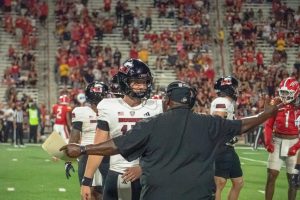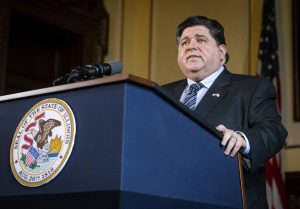NCAA rulings are acts of inhumanity
April 29, 2019
If I decided to move to Athens, Georgia, tomorrow to be with family, I could enroll at the University of Georgia.
As soon as I’m enrolled I probably could become a member of their student newspaper immediately.
The same applies to most college students in their given profession. Go anywhere in the nation as an aspiring cheerleader, professor or nurse, and you can probably get to work as soon as you want.
This is not true in football apparently; not according to the NCAA.
Offensive lineman Brock Hoffman had his waiver request for immediate eligibility at his new school denied, as the Coastal Carolina player is transferring to Virginia Tech to be closer to his family after his mother had a brain tumor removed, according to a Tuesday Roanoke Times report.
The NCAA ruled Hoffman didn’t meet the criteria of the waiver because his home was five miles outside of the required 100-mile radius from Virginia Tech, and NCAA doctors concluded the health of Hoffman’s mother was improving despite his claims she was suffering facial paralysis and hearing loss.
The same decision fell onto tight end Luke Ford, the Georgia player transferring to Illinois in hopes of playing in front of his sick grandfather.
Yahoo Sports reported Wednesday Ford’s request was denied and his new school, University of Illinois, will appeal.
It goes against the foundation of football, the sport the NCAA governs, to try to punish players for being part of a family.
Coastal Carolina and Georgia were families for their players, and when real family issues came, those universities supported their players in moving on to try and better their lives. Virginia Tech and Illinois did their part in bringing in players who both had renewed purpose in the game and in life and making them family.
{{tncms-inline account=”Brock” html=”<blockquote class="twitter-tweet"><p lang="en" dir="ltr"><a href="https://twitter.com/hashtag/HokieNation?src=hash&amp;ref_src=twsrc%5Etfw">#HokieNation</a> I NEED YOUR SUPPORT!! <a href="https://t.co/LDOXy4vRMV">pic.twitter.com/LDOXy4vRMV</a></p>&mdash; Brock (@BrockHoffman76) <a href="https://twitter.com/BrockHoffman76/status/1120817980517113856?ref_src=twsrc%5Etfw">April 23, 2019</a></blockquote>” id=”https://twitter.com/BrockHoffman76/status/1120817980517113856″ type=”twitter”}}
Those pseudo-football families of players are what drive the NCAA. The actual families of players are treated as secondary to the players.
These denials of eligibility come after the NCAA relaxed policy on transfer eligibility, saying in a report from April 2018 that automatic eligibility would be granted if there is “documented mitigating circumstances that are outside the student-athlete’s control and directly impact the health, safety and well-being of the student-athlete.”
The NCAA already granted eligibility to several players, including letting Ohio State quarterback Tate Martell play right away at Miami. Martell’s request was granted after Justin Fields transferred to Ohio State and Martell’s lawyer argued the team no longer wanted him.
To recap, the NCAA can control how much a player plays, how much they make and what is required for them to play, but it’s the players who are apparently in full control of the health of their families.
But if a player’s athletic ability is not standing up to that of competitors, the NCAA is willing to make an exception for them and their lawyers.
That is the root of the problem: Martell will make the NCAA and Miami money.
Ford and Hoffman, for as talented as they may be one day, won’t make big money or draw ratings for college football.
Ford and Hoffman, whose windows of playing time are shrinking unlike other students in their profession, are being hung out to dry even when they are playing for something bigger than themselves.
The NCAA has the benefit, however, of time to marinate in the shame they are being rightfully treated to right now. One can only hope the NCAA sticks by its decision in 2018 and just lets the players play.






